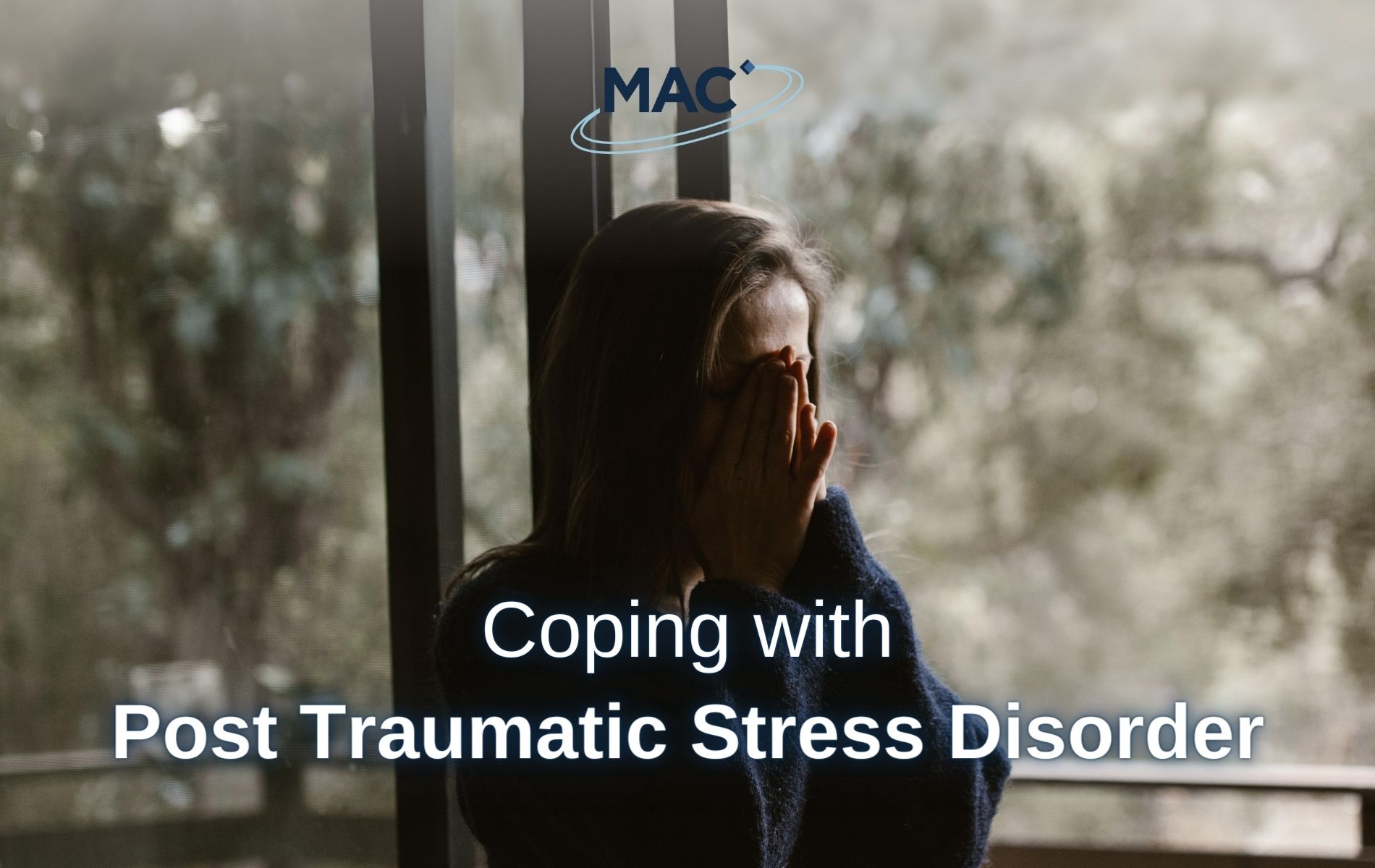Post Traumatic Stress Disorder (PTSD) is a complex mental health condition triggered by experiencing, witnessing or sometimes even hearing about a traumatic event. Symptoms can include flashbacks, nightmares, severe anxiety, and uncontrollable thoughts about the event. It’s estimated that around 1 in 10 people in the UK will experience PTSD at some point in their lives1.
Coping with PTSD requires a multifaceted approach to manage symptoms and improve quality of life. Here are some strategies for healing and growth for those living with PTSD.
Understanding PTSD
Firstly, understanding PTSD is crucial; it is not just an emotional response but a physical change in how the brain processes fear and stress. This knowledge can empower individuals to seek appropriate help rather than feeling ashamed or isolated.
In primary care settings, many individuals living with PTSD are not diagnosed, only up to 11% of people living with the condition are formally diagnosed with PTSD and less than half receive treatment2. It’s important to acknowledge that PTSD is a legitimate condition that requires care and treatment, just like any physical illness.
Building a Support System
A strong support system is vital for anyone coping with PTSD. Friends, family, and support groups can offer understanding, encouragement, and practical help. Certain support groups allow individuals to connect with others who have similar experiences, fostering a sense of community and reducing feelings of isolation. Online communities and forums can also be valuable resources, especially for those who might not have access to local in-person support groups.
Practicing Self-Care
Self-care practices are essential in managing PTSD symptoms. Regular physical activity, such as walking, yoga, or swimming, can help reduce stress and improve mood; this activity doesn’t have to be overly strenuous either, whatever is comfortable and in-keeping with your fitness level can help to increase the production of endorphins, which are natural mood lifters, and decrease stress hormones such as cortisol. Many living with PTSD, however, find engaging in physical activity challenging. In one study, around 22% of participants significantly reduced their levels of exercise after the onset of PTSD3.
Mindfulness and meditation practices can also be beneficial, helping individuals stay grounded and present. Techniques such as deep breathing exercises, progressive muscle relaxation, and guided imagery can provide immediate relief from anxiety and stress.
Healthy Lifestyle Choices
Adopting a healthy lifestyle can significantly impact PTSD symptoms. For example, establishing a regular sleep routine can help, up to 90% of people living with PTSD report sleep disturbances, such as nightmares4. Creating a calming bedtime ritual, reducing screen time before bed, and ensuring a comfortable and cool sleep environment can promote better rest.
Other healthy practices such as engaging in creative activities can be a powerful tool for coping with PTSD. Art, music, writing, and other creative outlets provide an alternative way to express emotions and process experiences. Keeping a journal can be particularly therapeutic, allowing individuals to reflect on their thoughts and progress over time.
Art therapy, particularly can help individuals explore their feelings in a non-verbal way, which can be especially useful when words are difficult to find. Research has found that 68% of trauma survivors experienced a reduction in PTSD symptoms after engaging in art therapy interventions5.
Developing Resilience
Resilience is the ability to adapt and recover from adversity. Building resilience involves developing coping skills, fostering a positive outlook, and setting realistic goals. Learning to celebrate small victories and being patient with oneself is crucial. Resilience doesn’t mean the absence of symptoms but the ability to better navigate through them and continue moving forward.
Seeking Professional Help
Professional therapy is often the cornerstone of PTSD treatment. Cognitive Behavioural Therapy (CBT) and Eye Movement Desensitisation and Reprocessing (EMDR) are two evidence-based therapies that have shown effectiveness in treating PTSD. CBT helps individuals understand and change their thought patterns, while EMDR focuses on processing and integrating traumatic memories through guided eye movements. Working with a trained therapist can provide a safe space to explore these techniques and develop personalised coping strategies.
Some patients living with PTSD may be prescribed antidepressants such as Selective Serotonin Reuptake Inhibitors (SSRIs). For patients prescribed SSRIs, unfortunately 40% will not receive benefit from this medication, and only 20% to 30% of patients achieve complete remission6.
It is for this reason that more treatments are needed to be developed for PTSD. That’s why we are excited to be running a confidential clinical trial, evaluating the effectiveness of a new investigational oral medication on PTSD symptoms.
Learn more about the clinical trial exploring the effect of an investigational oral medication on PTSD symptoms when taken weekly over a 4-week period.
Eligibility criteria include:
- Age 18 – 65 years
- Experiencing symptoms of PTSD due to a traumatic event that occurred in your life
- Able to visit your local MAC clinic up to 14 times over an approximate 4-month period
- Tried at least one treatment (psychotherapy or pharmacological) for PTSD which failed to help treat symptoms.
Reach out to us today via our PTSD Research Webpage to learn more about the study and see if you qualify to take part in this important research
1 PTSD UK – Post Traumatic Stress Disorder stats and figures
2 The Journal of Behavioural Health Services & Research – Discrepancy in diagnosis and treatment of post-traumatic stress disorder (PTSD): Treatment for the wrong reason
3 Clinics – Evaluation of Physical Activity Habits in Patients with Posttraumatic Stress Disorder
4 Psychiatry – Disturbed Sleep in PTSD: Thinking Beyond Nightmares
5 Black Alphabet – The Compelling Impact of Art Therapy: 6 Eye-Opening Statistics
6 P&T – Pharmacotherapy for Post-traumatic Stress Disorder In Combat Veterans




